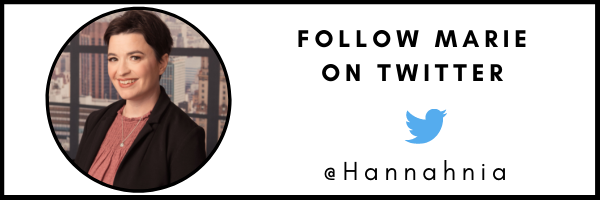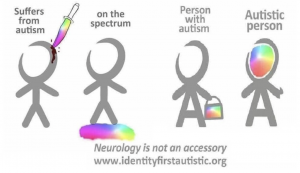TL;DR:
- There are three types of language that people use to describe disabilities: person-first, identify-first, and person-centered.
- To be most respectful, connect with individuals in the community and ask for their preference in language to use.
“She suffers from cerebral palsy.”
“He is ‘on the spectrum’.”
“She is a person with a hearing impairment.”
“He is a blind man.”
There are many different ways and opinions on how to refer to individuals with disabilities. This terminology can also turn into extremely heated debates. But what is the correct way? Is there a correct way?
We want people to be treated how they want to be treated. Considering each individual's preference is how we can achieve this and continue to grow as a society. Share on X
Disability and Language: What is “person-first” language?
“Person-first” language refers to putting the person before the disability. This concept was first introduced beginning in the early 1970s. Why? Because advocates were concerned that individuals with disabilities were being seen as “less than,” dehumanizing, or even dismissing of personhood. There can be inherent assumptions and discrimination in a disability label. Therefore, there was a shift for the focus to be on the individual themselves, not the disability with which the person had.
Disability and Language: What is “identify-first” language?
“Identity-first” language puts the emphasis on the disability as a part of the person’s identity. The idea is that the person is simply not the same when you disregard the disability with which they live. The disability and the lived experiences with which it brings is a piece of who the person is. Putting less focus on the disability can feel like you are diminishing a part of that person’s identity.
Disability and Language: What is “person-centered” language?
Enter contestant #3. There is now a movement referred to as “person-centered” language. This puts the emphasis on what each individual would like to use. It can be likened to asking the correct pronunciation of someone’s name or their preferred pronouns. We take the assumptions away and know exactly what this person would like.
[scroll down to keep reading]
Disability and Language: So what do I do???
I have had the privilege of learning and hearing from many different types of activist and disability groups. There is a common theme. You can’t take away the disability without changing a fundamental part of who that person is. Disability groups have their own culture. As such, they prefer to identify that the disability is an important piece of who this person is and is continuing to become.
Connect with and ask adults in the community. What language do they prefer for their community? What language do they prefer for their future generation? You may get very differing views and opinions on this as well. However, doing this will help us all grow in our empathy towards understanding the diversity within the disability communities and cultures.
I have met people who have insisted that one way is the best way. However, we want people to be treated how they want to be treated. Considering each individual’s preference is how we can achieve this and continue to grow as a society.
About Marie McCumber
Marie McCumber is an Elementary School Teacher at the Ohio State School for the Blind. She believes in the capability of all individuals and tries to advocate for this. She loves to be outdoors teaching and with her own family, creating in the kitchen, reading, writing, or relaxing in her hammock.



